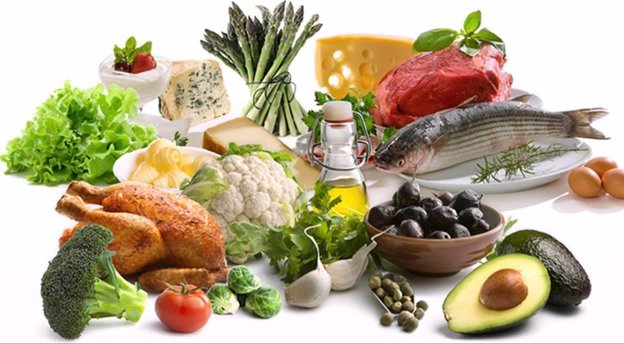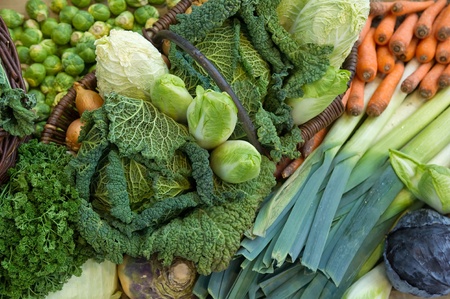As today (Feb 4th) is World Cancer Day we wanted to raise awareness about this disease. Recognised worldwide as being a major health problem affecting millions of people each year, including more than 1 million people in the United States alone who get it every year. The major reason that cancer has such a high mortality rate is because of certain cells and their abnormal behaviour which leads to cancer cell progression, the growth of tumours and metastasis.
Studies have suggested that 30-40% of cancers can be prevented by following a healthy lifestyle and taking the right dietary measures. Some sources claim that this number is much higher but it is believed that around 75% of cancer cases are lifestyle related.
Eating a healthy diet is one strategy that is completely in our control and this includes eating healing foods, vegetable juices, taking probiotic foods, immune boosting supplements, relieving stress and practicing healing prayer. All of these can encourage you to feel empowered and hopeful in the process of battling a disease.
Foods that are believed to increase inflammation and that of cancer risk include sugars, refined oils, refined carbohydrates, conventional dairy products and farm raised meats.
Foods that are known to lower inflammation include plenty of cancer-fighting foods with high levels of antioxidants and natural anti-inflammatory phytonutrients. Put simply, this means avoiding foods with dangerous phthalates and concentrating on foods that do not contain any antibiotics, chemicals or toxins. Choosing to buy foods that are grass-fed, organic, pasture-raised along with being additive-free can lower the toxic load within your diet.
2010 findings from the EPIC (European Prospective Investigation into Cancer and Nutrition) found that dietary factors associated with high cancer risks showed there were significant associations between cancer risk a low intake of certain nutrients. Data from this investigation was published in The European Journal of Cancer and also showed an inverse association between a high intake of Vitamin C, a-tocopherol, carotenoids, retinol and fiber with overall cancer risk.
Research into over 519, 978 participants in 10 European nations has also shown that those following a lifestyle similar to the Mediterranean diet were more likely to be protected. It was also shown that eating plenty of cancer fighting foods such as vegetables, fresh fruits, fish, calcium rich food and those high in fiber were also associated with a decreased risk of colorectal, lung and breast cancers. Eating red and processed meat, alcohol and having an unhealthy BMI meanwhile were all associated with an increased risk.
Here are 10 of the best cancer fighting foods to consider…
- Cruciferous vegetables. Known to be a powerful cancer killer and high in Vitamin C, many of these foods have high free-radical scavenging abilities. Along with being a nutrient rich source of phytochemicals called isothiocyanates linked with cancer prevention, cruciferous vegetables also contain sulforaphanes and indoles, two kinds of antioxidants that can stimulate the detoxifying enzymes protecting the DNA structure. Eating plenty of cruciferous vegetables is a good way to lower your cancer risk.
- Dark berries. The ORAC score for dark berries is high, meaning they are a high antioxidant food and this includes blueberries, blackberries, raspberries, cherries, goji berries and strawberries. Berries are rich in proanthocyanidin antioxidants and have also been observed to have anti-aging properties that several studies have shown are capable of lowering free radical damage. The high amounts of phenols, lutein, lycopene, cryptoxanthin, polysaccharides and zeaxanthin have many other benefits of eating berries.
- Leafy green vegetables. Kale, Collard Greens, Spinach, Romaine, Arugula Salad and Watercress are rich in antioxidants that can help to combat cancer along with providing plenty of Beta-Carotene (a kind of Vitamin A) and Vitamin C. There are natural sources of glucosinolates as they also contain antibacterial and antiviral properties that can inactivate carcinogens while reprogramming the cancer cells to die off and preventing the formation of tumors and metastasis. These are powerful chemicals that can help to break down the chewing and digestive process into biologically active compounds that can prevent cancer cells from growing and these are referred to as indoles, thiocyanates and isothiocyanates. The Isothiocyanates (ITCs) that are found in leafy greens have been reported to help detox the body at a cellular level.
- Brightly orange coloured fruits and vegetables. Carotenoids such as alpha-carotene, beta-carotene, lycopene, lutein and cryptoxanthin are all derivatives of Vitamin A and this is found in citrus fruits, berries, sweet potatoes, pumpkin and squashes. An essential nutrient, this can support immune function and this includes detoxification, liver health and fighting cancers of the eyes, skin and organs. Two nutrients in particular can give these foods a signature dark hue and this include lutein and zeaxanthin that can help to prevent eye and skin related disorders. These act as antioxidants that can filter any harmful high-energy blue wavelengths, while protecting the healthy cells in the process. Carbohydrate rich vegetables have shown in studies that as complex carbs, this includes carrots, beets, sweet potatoes, tubers and other whole grain foods. This is related to a reduced risk of several types of cancer especially in the upper digestive tract. This is most likely because fiber plays an important role, although this is still open to being discussed. High glycemic load foods are also associated with an increased risk of different types of cancer and this includes breast and colorectal cancer.
- Wild Caught Fish. Higher fish consumption has been seen as an indicator of improved immune function. The 2004 study conducted by the Richerche Institute of Pharmacology also investigated the cancer-fighting effects of following the Mediterranean diet and that people who were reported as eating less fish and frequently eating red meat were shown to have several common neoplasms in their blood, therefore suggesting higher susceptibility. Fish such as mackerel, salmon and sardines contain inflammatory omega-3 foods that have been associated with improved brain, healthy hormones and nervous system health. Omega-3s have anti-inflammatory effects and recent studies have connected this with preventing cancer.
- Fresh Herbs and Spices. Turmeric in particular has been shown to contain curcumin, an active ingredient that can decrease tumor size and fight breast and colon cancer according to various studies. Absorption of turmeric has been shown to enhance and fight inflammation. Herbs such as oregano, basil, thyme, raw garlic, ginger, parsley and cayenne pepper can all act as immune system boosters and are ideal when added to recipes such as smoothies, dressings and juices.
- Nuts and Seeds. Hemp seeds, walnuts, almonds, brazil nuts, sunflower seeds, pumpkin seeds, sesame seeds, are full of healthy fatty acids. Chia seeds and flaxseeds are nutrient-dense and a good source of fiber, omega-3 fatty acids and various important minerals.
- Healthy Unrefined Oils such as Coconut Oil, Cod Oil, Extra Virgin Olive Oil and Flax Oil can help to nourish the gut while promoting better immune function that also helps with weight maintenance, and essential Omega-3 fatty acids that can help to energize cells. The brain and nervous system controls the function of the body and 60% of the nervous system which is made up of fatty acids.
- Cultured Dairy Products. Considered to be a rich source of “good bacteria” probiotics, microorganisms can promote a natural bacterial balance within the body while increasing immunity. As 80% of the immune system is housed within the gut, it’s therefore unsurprising that probiotic foods can help to prevent tumor growth and help with cell renewal. Probiotics such as raw milk products like cheese, kefir, yogurt are recommended. It’s important to avoid dairy foods as they are loaded with hormones, antibiotics and painkillers that can create pesticide residue. For this reason, buying organic produce is highly recommended. Taking probiotic yogurts or increasing foods such as cultured vegetables, kimchi, coconut kefir, kombucha, sauerkraut or natto are all good ways to increase probiotic food intake.
- Mushrooms can vary in their nutritional benefits and species but they are known to be immune enhancers and these have been used for centuries to fight cancer. Mushrooms such as Reishi, maitake and cordyceps can improve the immune system’s functioning and promote cell regeneration. Taking a capsule or tincture form or even cooking with mushrooms, preferably whole, is the ideal recommendation.
Recommended Reading
Cancer Cell Rehabilitation in 30 Days eBook – This book provides a detailed step by step guide to improving cellular health by following a dedicated healthy lifestyle and nutrient plan. It outlines a 30 day guide anyone can use to improve their health and to live cancer-free.
Recommended Products
 Curcuminx4000™ – Each capsule of CurcuminX4000™ contains 200mg of highly effective Curcumin Phytosome, which in a recent study showed an increase in utilization up to 45X compared to ordinary Curcumin 95%. Curcumin’s potent antioxidant abilities offer the potential for numerous benefits. Research suggests curcumin’s antioxidant activity and support of the body’s normal inflammatory response, that plays a significant role to play in contributing to cellular health.
Curcuminx4000™ – Each capsule of CurcuminX4000™ contains 200mg of highly effective Curcumin Phytosome, which in a recent study showed an increase in utilization up to 45X compared to ordinary Curcumin 95%. Curcumin’s potent antioxidant abilities offer the potential for numerous benefits. Research suggests curcumin’s antioxidant activity and support of the body’s normal inflammatory response, that plays a significant role to play in contributing to cellular health.







a question regarding serrapeptase….would you suggest this enzyme for polymyalgia rheumatica, and if so, what dosage would you recommend?
Hi Barbara. Yes, serrapeptase will help with Polymyalgia Rheumatica. The recommended dosage is to take 2 capsules of Serranol x 3 times per day, 30 mins before eating a meal. Take with water and reduce to 1 x 3 after a good relief. Follow the Autoimmune Disease Health Plan here for best results: https://www.goodhealthhelpdesk.com/index.php?/Knowledgebase/Article/View/1916/105/autoimmune-disease-health-plan
The general consensus from many of the health sites I receive information from is that Wild Alaskan Salmon, Sardines, and Anchovies are the safest fish to consume these days. I know you recommend Mackerel as well, but there is a fair amount of controversy about the safety of this fish.